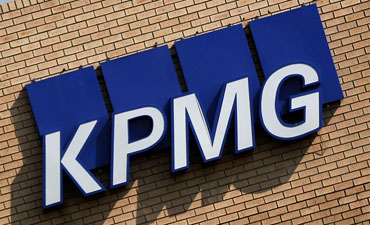Big law firms continue to prosper but as clients push for convergence will the big four accounting firms be the ones in-house counsel look to in the future to satisfy all of their needs?

According to research from ALM Intelligence presented last week at LegalWeek in New York, as Deloitte, PWC, KPMG and EY expand their legal offerings, they pose the biggest threat to the future success of law firms and alternative service providers.
“The big four are aiming to completely re-think the way professional services are delivered by combining their consulting, their accounting and legal services into a single multidisciplinary offering — they’re re-thinking the way professional services are bought, sold and delivered,” said Nicholas Bruch, analyst with ALM Intelligence. “They clearly feel they are expanding into the legal industry with the wind at their back and to some degree I understand why they feel that way. The legal arms of the big four are significantly larger than most people appreciate.”
On average, Bruch said the big four accounting firms have about 2,000 lawyers in their legal divisions, they are also more global and have extremely strong relationships with the C-suite.
“They have strong brands and deep pockets — their ambitions in the legal industry are fairly clear at this point — they plan to target services adjacent to their traditional services accounting and consulting and expand into a range of managed services that will bring them into direct confrontation with traditional ASPs and to some degree legal tech,” he said.
Last October in Toronto, Deloitte Conduit Law LLP ended its 18-month relationship when founder Peter Carayiannis announced Conduit Law’s “renewed independence.”
A few weeks later, PWC in the U.K. announced it was launching “Flexible Legal Resources” to provide corporations with lawyers when needed, taking the form of services offered by ASPs such as Axiom.
But law firms are fighting back against the pressure from the big four and the growth of interest in ASPs. Despite all the talk of the death of the law firm hourly rate, the ALM Intelligence report shows hourly rates currently account for about 70 per cent of total spend and rates are continuing to go up every year.
“Revenue per lawyer, profit per lawyer and profit per equity lawyer are all up over the last five years and all of these figures are at or near all time highs — even after adjusting for inflation,” said Bruch. “There is no secret to how law firms are doing this — they are cutting costs, outsourcing non-essential tasks, embracing technology in some areas and re-engineering work processes in others. In short they are responding to the market — to their new competitors and their clients — they are innovating.”
In an interview ALM Intelligence did with Philadelphia law firm Morgan Lewis & Bockius LLP chairwoman Jami Wintz McKeon, she said in the last several years the firm has seen a renewed focus from clients on convergence — “they do not want to deal with 1,000 different law firms… their problems are cross-border, cross discipline, cross industry and so there is a great value to them if they can go to one place to get their needs met and in that respect there is no question in my mind that there is a need for scale and size can be a competitive advantage, but there is a huge caveat to that and in my view size is a competitive advantage only if you get everything else right.”
Bruch also predicts that there will be consolidation in which law firms and ASPs will merge and much of it will be driven by the big four.
“We will also see more collaboration especially across bet the company firms who have no overlap with traditional ASPs. The full service firms should be collaborating with their clients to understand how much services should be delivered and what services should be added,” said Bruch.
When it comes to in-house insourcing — the trend of the last 10 years or so of in-house departments bringing work inside — ALM Intelligence data suggests it may be slowing.
“CFOs are saying they are growing weary of adding headcount, salaries are rising internally and all of this raises questions around whether the in-sourcing trend can be continued, and if the low-hanging fruit for in-sourcing has already been plucked,” said Bruch.
And what about the legal departments themselves?
“They will exist in the zone of competition as real competitors with ASPs, full service and the big four but will also play the traditional role of general contractor. Law departments in the future are going to have to think about adding new skills, new talent new technology just to manage all of these moving parts,” said Bruch.










